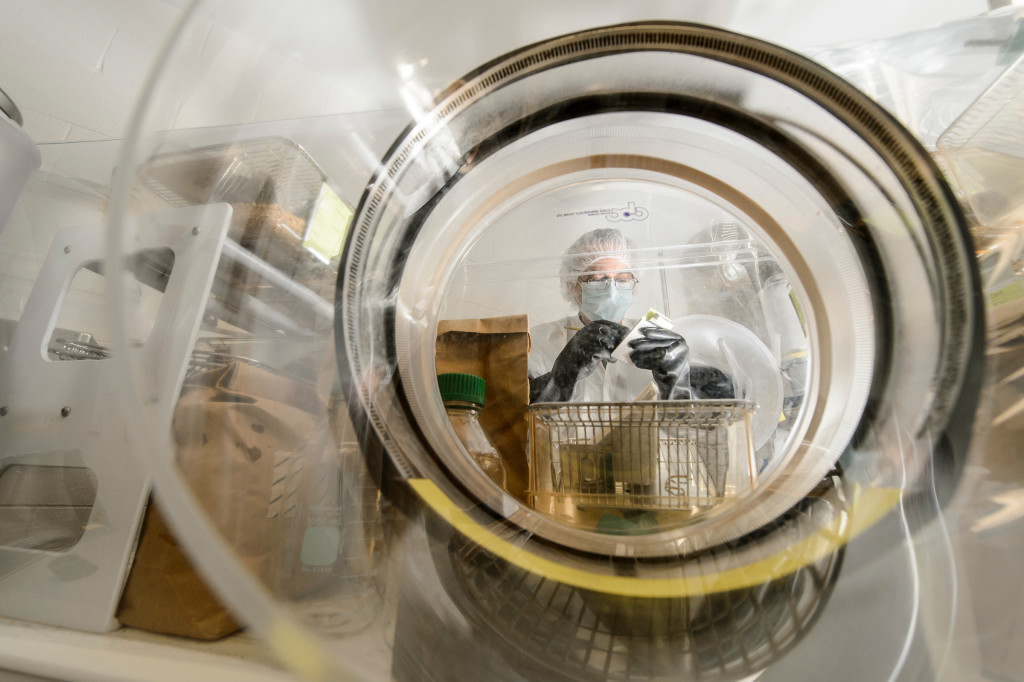
Nacho Vivas, lab manager at the Rey Lab in the Bacteriology Department at the University of Wisconsin-Madison, checks on a group of germ-free mice inside a sterile lab environment on June 22, 2015. Research led by Federico Rey has found some microbes in the guts of humans and mice may help control the buildup of plaque in arteries, the leading cause of cardiovascular disease, by gobbling up a group of inflammatory chemicals before they can circulate in the body. Photo:
/Public Release. This material from the originating organization/author(s) might be of the point-in-time nature, and edited for clarity, style and length. Mirage.News does not take institutional positions or sides, and all views, positions, and conclusions expressed herein are solely those of the author(s).View in full here.






